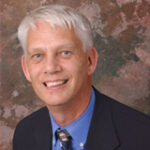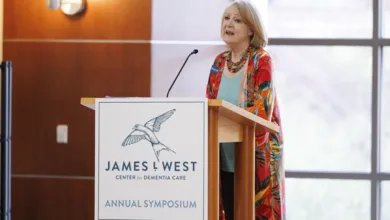How to Keep Your Mind Sharp After 50

By: Dr. Bert Hayslip |
As people reach their 40’s and 50’s temporary slips of memory, difficulty learning new ideas and concepts, or solving new problems sometimes convince them they’re “getting old”—or, worse, they might be suffering from Alzheimer’s disease.
For older persons who have lost confidence in their mental skills, simply balancing a checkbook, attempting a crossword puzzle, trying Sudoku, or memorizing important numbers may cause them to rely on a computer program, a calculator, their spouse, or one’s (grand)children to perform these relatively simple activities! But minimizing the use of such skills contributes to more avoidant behaviors leading to further loss of self-confidence and greater anxiety about failure.
Making efforts to improve our skills is a hallmark of successful aging. Regarding learning and memory, knowledge is power. Indeed, distinguishing between normal, maturational (age-related) changes in our skills that are independent of disease, and pathological changes in our skills because of disease and/or lifestyle (e.g., dementia, depression and anxiety, inactivity, stress) is very important.
As each of us grows older, we are different from one another in our mental skills.
Some people will experience difficulties with mental activities as they age, while others will not. These differences are explained by the influence of many factors impacting the aging of our mind, including a variety of physical, emotional, and interpersonal factors, and lifestyle choices and sensory influences. They all directly or indirectly influence our mental skills, motivation to solve new problems, and ability to learn and recall information.
So, how can we keep our minds sharp as we approach 50 and beyond?
1. Grow knowledgeable about the aging process. You’ll separate myth from fact. You will not succumb to the stereotypes of declining skills or the inevitability of dementia.
2. Remember that the aging brain is flexible and is continually responsive to stimulation and both physical and mental activity- the aging brain demonstrates plasticity.
3. Develop realistic expectations of what you can and cannot do. Set everyday goals that are meaningful to you and increase the quality of your life.
4. Take care of your health. Exercise regularly, get a good night’s sleep, and eat heart healthy foods (low fat, high fiber foods, fruits, vegetables, fish, chicken, and olive oil.)
5. Do activities forcing you to think that are interesting and challenging: travel (by yourself), crossword or jigsaw puzzles, Sudoku, juggle, play an instrument, listen to new music, garden, paint, write a poem, watch Jeopardy, listen to NPR.
6. Do things that you normally do in different ways. For example, write or brush your teeth with your non-dominant hand.
7. Try new activities and develop new interests (car repair, tax preparation, knitting, cooking, or crocheting— yes, for both genders!).
8. Make a concerted effort to improve your memory. Read a book on memory improvement, or take a class!
9. Do not rely on technology (smart phones, computers) or drugs (Ginkgo Biloba, Prevagen) to improve your skills or keep your mind from declining.
10. Foster new, interesting, and supportive relationships with others. Diversity beats sameness and boredom!
11. Maintain a positive attitude toward learning, changing, and perseverance. Find a sense of purpose and look forward to each new day. Ask yourself “What can I accomplish today?”
12. Develop your curiosity quotient. Ask questions and actively seek out the answers.
13. Allow yourself to disagree with and debate others. This broadens your reservoir of knowledge and enables you to look at issues from many perspectives, rather than from just one.
14. Never give up on learning new things. Become a lifelong learner!
Engaging in these activities can help keep your mind young and your mental skills sharp long after you’ve celebrated your 50th birthday.






